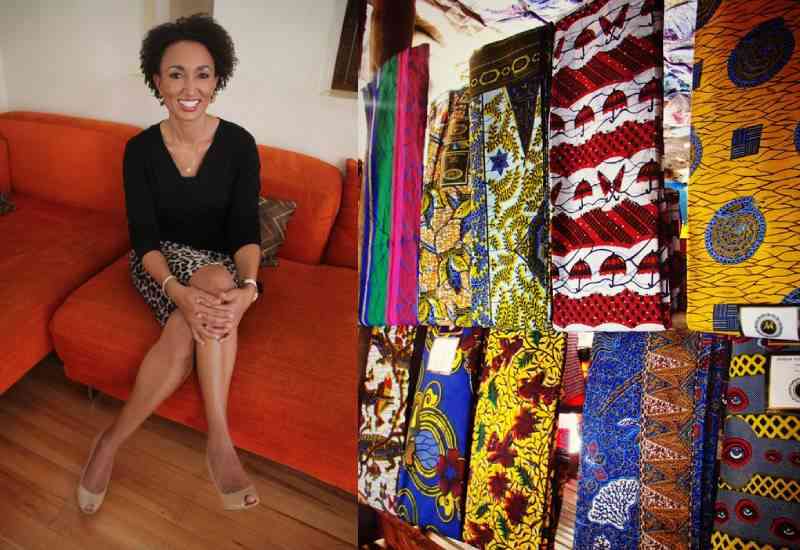
A Recent research shows that only five per cent of Kenyans wear clothes made in Kenya. Insiders say that with good pricing, the local fashion industry can be a goldmine.
A recent survey revealed that only five per cent of Kenyans wear clothes made in Kenya. Most Kenyans wear second-hand clothing from abroad, and one of the reasons they give is that Kenyan-made clothing is expensive.
That means they mostly reserve their Kenya-made wear for special occasions. Again, that means everyday wear like T-shirts, jeans, socks and other items are foreign.
What makes Kenyan clothing so expensive or is it just a perception?
Kenya's fashion industry was estimated to be worth Sh65 billion in 2021, but only a tiny fraction of it benefits locals, yet since about 50 million Kenyans get dressed every day, the untapped potential is massive.
Ironically, the cotton, textiles and apparel (CTA) industry is the second biggest manufacturing activity in Kenya, mostly for export. Big clothing brands like Polo and Hilfiger make their clothing in Kenya for export.
"If you to go the Export Processing Zone (EPZ) and look at what is happening under the African Growth and Opportunity Act (AGOA), you will find that the skills, the machinery, the competencies are actually in the country," said Anne Mutahi, a specialist in SME development and financial services and SME advisor to the president. She was speaking at an event held by Shop Zetu, which was attended by stakeholders in the fashion industry, with the aim of brainstorming solutions for what ails Kenya's fashion industry.
Cotton is grown in Kenya, but not enough of it to meet local demand. Most of it is exported and comes back to Kenya as fabric. One of the hurdles that local fashion practitioners have to contend with is that currently, most of the fabric they use is imported and expensive, yet it is where most of the costs are centered.
- How can I help my kids build stronger social skills?
- Money talk at the dinner table: Teach children value
- How to prepare your toddler for a new sibling
- Teaching kids to choose the right company early
Keep Reading
"Up to 70 per cent of the cost of making any piece of clothing is the fabric," said Wandia Gichuru, co-founder and CEO of Shop Zetu.
Some of the other costs are brought on by the fact that the fashion industry is complex, with a lot of moving parts in the process and steps, yet there is a lack of co-ordination in the industry.
Mutahi gave the example of Turkey where there is co-operation within the the entire value chain in the fashion industry, which in turn is in excellent collaboration with the government to make the industry function. The result is that Turkey has become a global fashion hub.
"Turkey is known for speed, being cost efficient, and fashion responsive; they are able to design something very quickly and distribute it," she said.
Other costs like electricity, conversion of water, transportation and so forth have to be considered. It goes down to small items like buttons and zips, all of which add to costs.
"I think it was three years ago we went to EPZ and we were shocked to find that even buttons had to be imported. Are you telling me that Kenyans cannot make buttons consistently to sell to all these EPZ people? I was even shocked that even the packaging material that goes out has to be imported," said Mutahi.
She added that working together in the fashion industry that could also advise and lobby as a collective to the government would enable solutions to be found that make everything more cost-effective both to the producers and the consumers.
"Because I know for sure that we have the energy. We have the ability to do so," she said.
One of the main solutions suggested is that government should consider waiving duty on imported fabric. "As we wait for the local textile mills to expand and improve their offering, which we will support and continue to do, we need to stop starving this industry of the raw materials that we need to make our products," said Gichuru.
"That one change alone would allow fashion brands and designers to reduce our costs, thereby reducing prices and it will widen the offerings that we make significantly," she said.
Gichuru is also the co-founder of Vivo whose clothing items are 100 per cent Kenya-made, with 19 fashion stores across Kenya and one in Rwanda, and employs over 300 people.
"The milestones Vivo has attained are evidence that local fashion is a serious business. It is a real thing and it can work. If nothing else, it is proof that Kenyans are ready to buy made in Kenya," she said, adding that the local industry creates employment. "From our experience, a brand that produces locally will create five times as many direct jobs as a brand that imports their products."
 The Standard Group Plc is a multi-media organization with investments in media
platforms spanning newspaper print
operations, television, radio broadcasting, digital and online services. The
Standard Group is recognized as a
leading multi-media house in Kenya with a key influence in matters of national
and international interest.
The Standard Group Plc is a multi-media organization with investments in media
platforms spanning newspaper print
operations, television, radio broadcasting, digital and online services. The
Standard Group is recognized as a
leading multi-media house in Kenya with a key influence in matters of national
and international interest.


